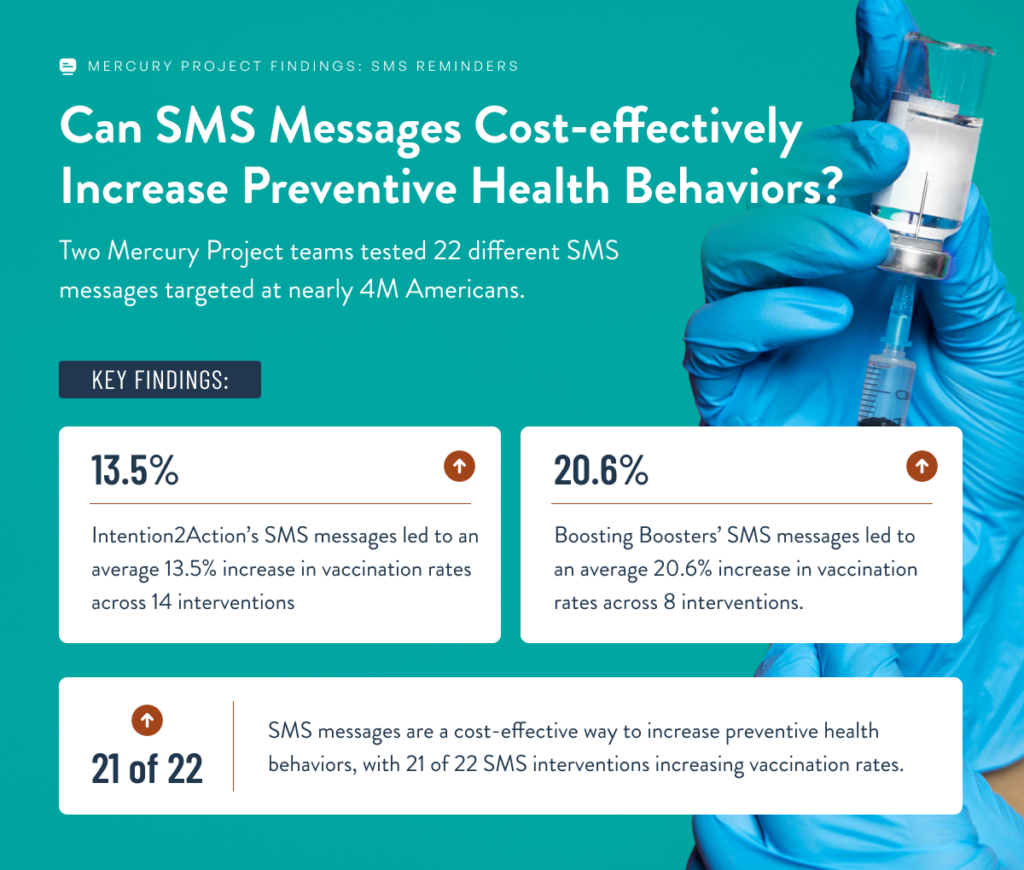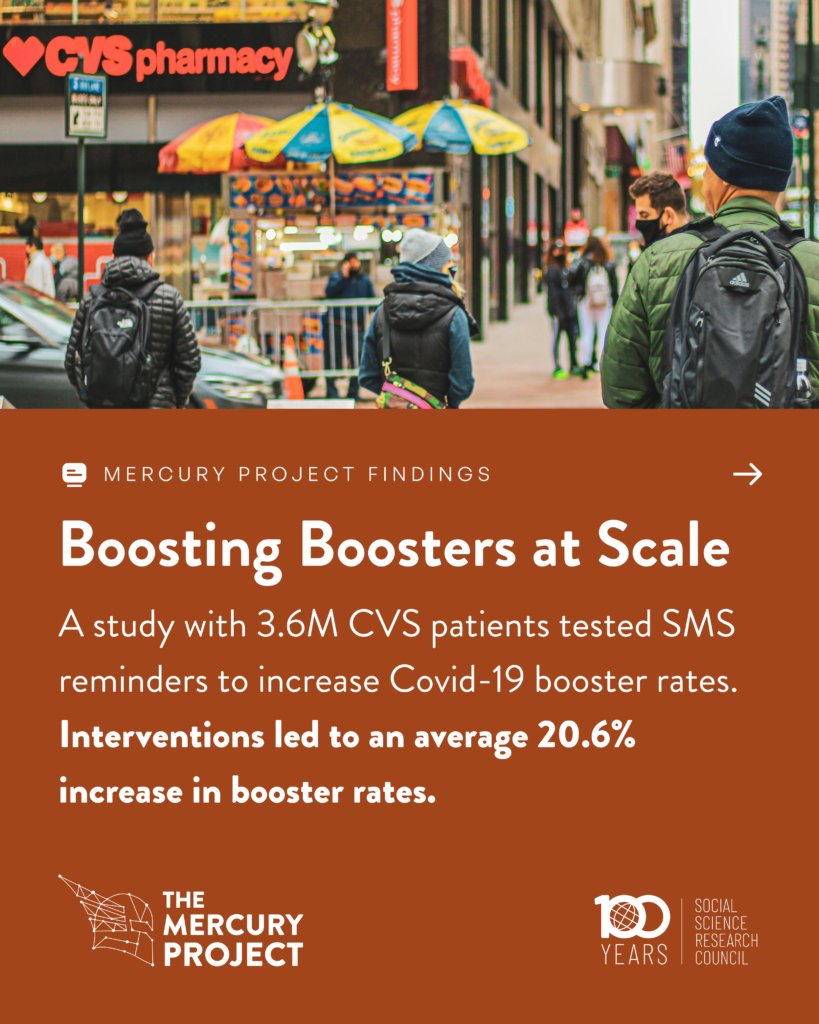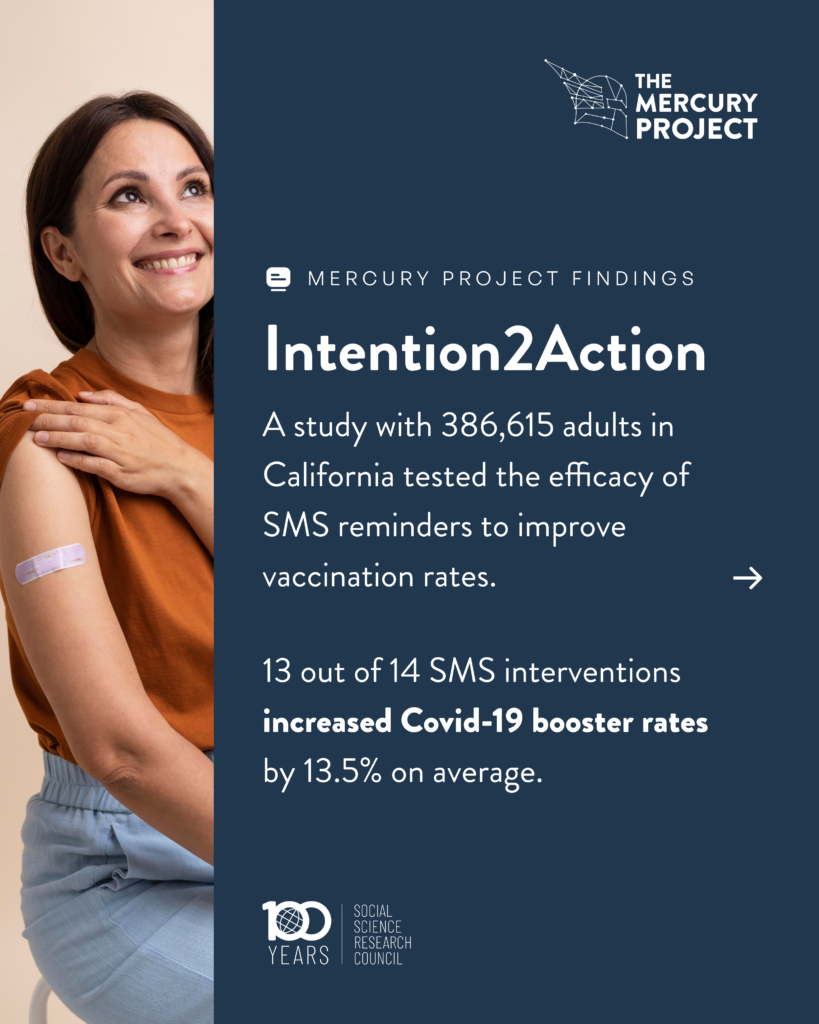Mercury Project Findings: SMS-based Interventions
Over the course of the past three years, the Social Science Research Council’s Mercury Project has supported 18 research teams around the globe in evaluating interventions designed to increase vaccination and other evidence-based health behaviors. We are excited to now present the many policy-relevant and actionable insights from their projects.
This month, we share the findings of Boosting Boosters at Scale and Intention2Action, two Mercury Project teams that used SMS-based interventions to encourage Americans to get Covid-19 boosters.
This work was recently published in Nature and Nature Human Behaviour. Find Boosting Boosters’ full study here and Intention2Action’s full study here.

SMS interventions have long been touted as cost-effective mechanisms to stimulate large-scale behavioral change. However, previous research suggests that the effectiveness of SMS interventions hinges on the phrasing and content of the messages themselves. Two Mercury Project teams conducted SMS-based interventions with a shared goal, to increase Covid-19 booster rates in a large sample of Americans, and relied on previous research in behavioral and social science to construct these messages.
While both teams targeted Covid-19 booster uptake, they differed in their motivations. Boosting Boosters evaluated whether addressing one logistical barrier to getting vaccinated, finding transportation to a vaccination site, would increase booster uptake more so than behaviorally informed text message reminders. Intention2Action tested the effectiveness of three different constructions of SMS-based interventions – those built on previous field tests, those built on hypothetical results from an online survey, and those predicted by experts and laypeople to be effective. In a series of follow-up surveys, Boosting Boosters also surveyed experts and laypeople, checking whether their predictions aligned with the study’s results. Between both teams, 22 different SMS messages were tested on nearly 4 million people, garnering numerous statistically-powered insights on what works and what doesn’t.
Results from both teams suggest the effectiveness of SMS-based interventions to encourage vaccinations, with 21 out of the 22 interventions increasing booster uptake rates. Intention2Action’s SMS interventions increased booster rates by an average of 13.5% across 14 interventions, while Boosting Boosters SMS interventions increased booster rates by an average of 20.6% across 8 interventions.
Results from these teams speak to the importance of empirical evidence, rather than reliance on theoretical insights or even hypothetical preferences in surveys, when selecting which policies to implement. Intention2Action found that an SMS message constructed based on “best guess” insights from experts and laypeople was the only intervention that was unsuccessful at increasing Covid-19 booster rates. SMS messages constructed based on stated preference style surveys were effective, but notably less effective than those constructed based on experimental evidence. The Boosting Boosters team also noted that neither laypeople nor experts correctly predicted which interventions would be most impactful.
Other results, highlighted in the sections below, provide insight into the components of a high-impact SMS message. For example, Intention2Action found providing a specific link to the participant’s pharmacy website to be highly effective. Addressing misconceptions about vaccines, on the other hand, generated mixed results. For further insights from each project, including who is best targeted with an SMS intervention and how long we can expect these effects to last, see below.



